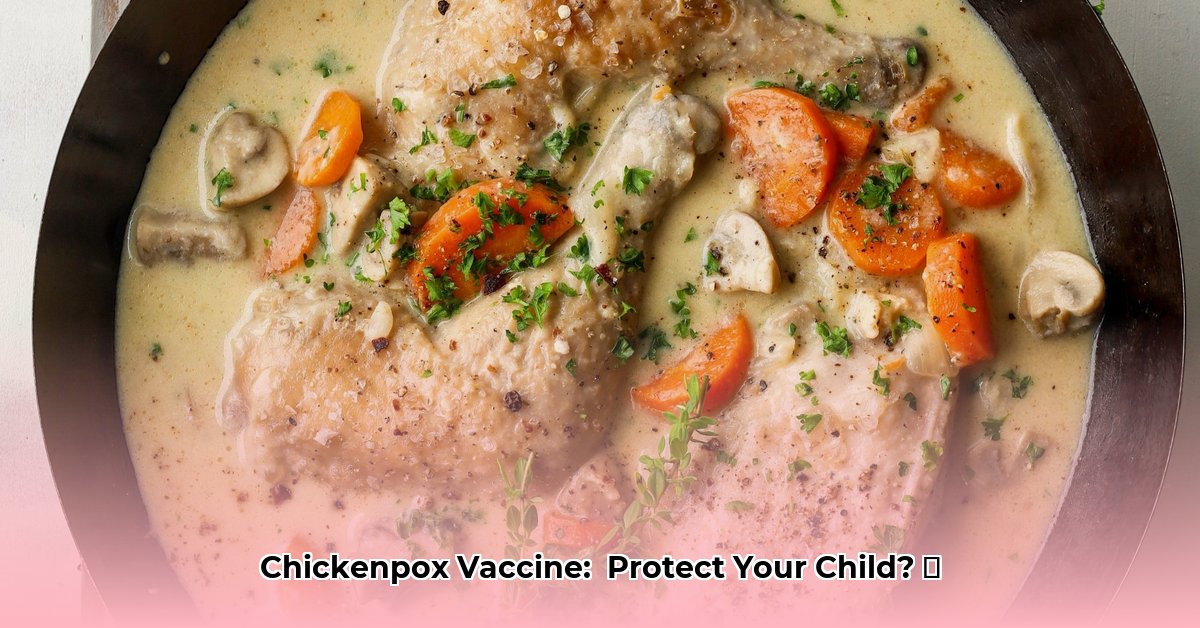
Hey there, lekker mense! Let's talk about the chickenpox vaccine – a small jab with a big impact. This guide covers everything you need to know, in plain English, to make informed decisions about protecting your kleinspan (or yourself!). We'll tackle how it works, its effectiveness, potential side effects, and address those common worries about vaccination. Whether you're a parent, healthcare professional, or just curious, this is your go-to resource.
How the Chickenpox Vaccine Works: Training Your Body's Defence
The chickenpox vaccine is clever. It uses a super-weakened form of the varicella-zoster virus (the virus causing chickenpox). This weakened version is like a safe training exercise for your immune system. It teaches your body to recognise and fight off the real chickenpox virus without causing the full illness. Think of it as giving your body a practice run before the "main event"!
Efficacy and Safety: How Effective and Safe Is It?
The chickenpox vaccine is highly effective, preventing chickenpox in about 90% of people who get both doses. That's a fantastic success rate! Serious side effects are rare. Most people experience minor issues, like a slightly sore arm or a mild fever. Since the vaccine's widespread use, chickenpox cases have plummeted, leading to fewer school absences and hospital visits. "The vaccine is a testament to preventative medicine’s success," says Dr. Nomusa Mthethwa, Pediatrician at Chris Hani Baragwanath Hospital. "It's significantly reduced the burden of chickenpox on our healthcare system."
Vaccination Schedule: Timing Matters
The chickenpox vaccine is usually given in two doses. The specific timing depends on your child's age; consult your doctor or clinic for the recommended schedule. They'll advise on whether to use the combined MMRV vaccine (also protecting against measles, mumps, and rubella) or separate chickenpox vaccines. Generally, separate vaccines are preferred for children under 4 years old, as the MMRV vaccine might slightly increase the fever risk in younger children.
Contraindications and Precautions: When to Wait
The chickenpox vaccine isn't for everyone. If your child has a weakened immune system (due to illness or treatment), or if the mother is pregnant, consult your doctor first. The vaccine should also be avoided soon after receiving other live vaccines. Your doctor will help you create an ideal schedule. "It's crucial to assess individual health before vaccination," advises Dr. Sipho Dlamini, Immunologist at Stellenbosch University. "This ensures the vaccine is administered safely and effectively."
Breakthrough Chickenpox: What if My Child Still Gets It?
Even after vaccination, there's a small chance your child might still get chickenpox. But the good news? If it happens, it's usually much milder—perhaps just a few spots rather than a severe case. This also reduces the risk of spreading it to others.
Addressing Vaccine Hesitancy: Facts Over Fiction
We understand vaccine hesitancy. It's natural to have questions! However, the benefits far outweigh any minor risks. The scientific evidence overwhelmingly supports the safety and effectiveness of the chickenpox vaccine. Claims linking it to autism have been repeatedly debunked by extensive scientific research. "The link between the chickenpox vaccine and autism is a myth," confirms Professor Bongani Mayosi, Infectious Disease Specialist at the University of Cape Town. "There is no credible scientific evidence to support this."
Actionable Steps for Different Stakeholders
Here’s a quick summary of what various stakeholders can do:
- Parents/Guardians: Schedule those two doses! Talk to your doctor if you have any concerns.
- Healthcare Providers: Follow guidelines, provide clear information to patients, carefully manage contraindications.
- Public Health Officials: Promote high vaccination rates through public awareness campaigns and tackle vaccine hesitancy.
The Bottom Line: A Simple Step Towards Better Health
The chickenpox vaccine is a powerful tool. It's a simple act with a massive impact on preventing a potentially serious illness. Stay informed, chat with your doctor, and beskerm jou gesin (protect your family)! It’s a simple step towards a healthier life.